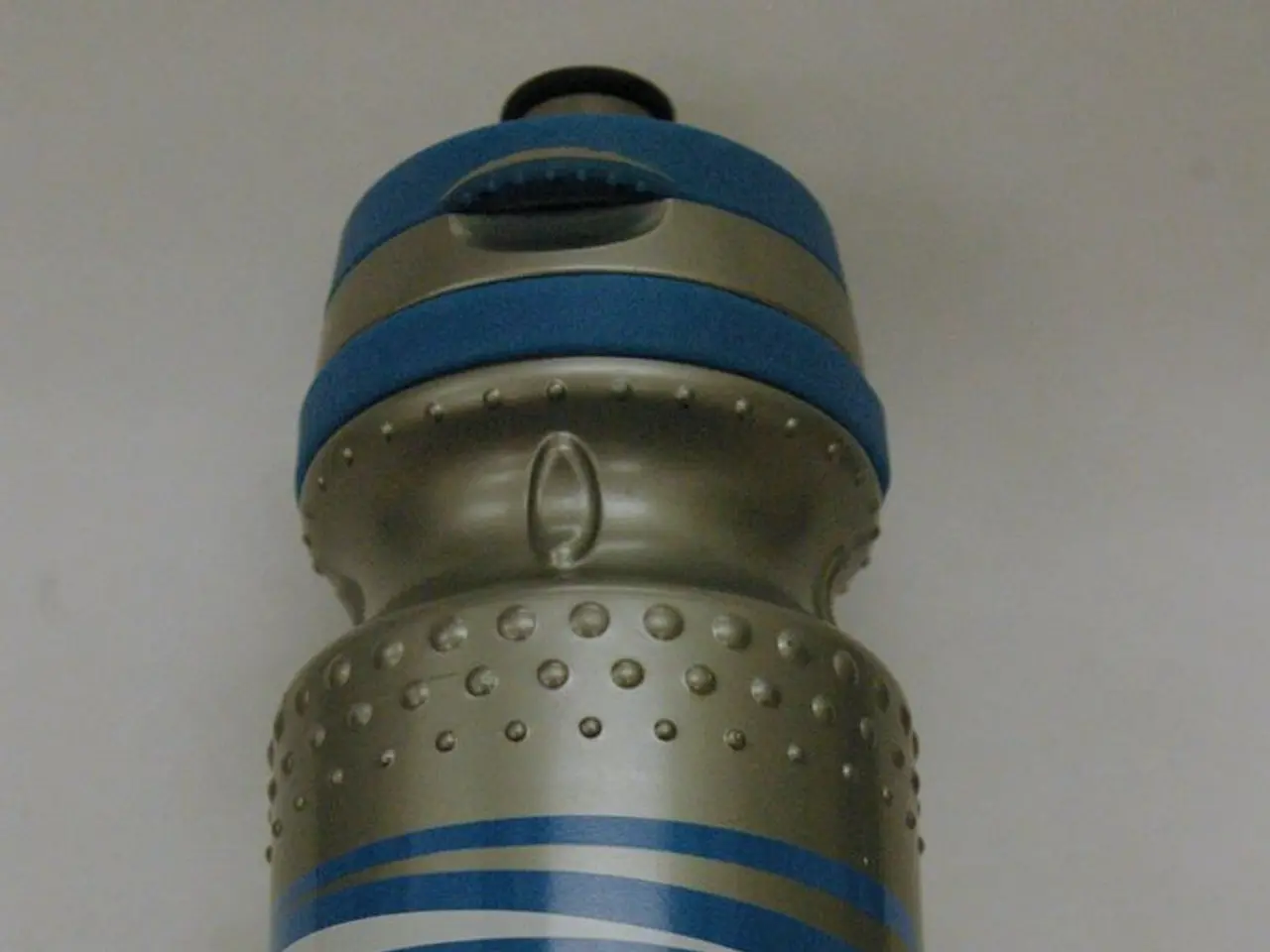Rapid Dementia Identification - Swiftly Distinguish Early-stage Dementia in a Matter of 5 Minutes (Brainalyze)
In the ongoing battle against dementia, a UK-based company named Brainalyze is making significant strides. The innovative biotech startup, co-founded by Professor Sumeet Mahajan and Dr George Devitt, has developed a groundbreaking finger-prick blood test for diagnosing early-stage dementia, including Alzheimer's disease.
This simple, five-minute test is designed to detect specific biomarkers associated with dementia from a small blood sample. This approach makes diagnosis more accessible and less invasive compared to traditional methods like PET scans or lumbar punctures.
Brainalyze's test has shown impressive accuracy in pre-clinical trials, correctly identifying and distinguishing Alzheimer's disease from other dementia-causing diseases in 93% of cases. The company has also achieved similar results for other neurodegenerative diseases, such as tracking Huntington's disease.
The University of Southampton will be licensing the intellectual property (IP) for Brainalyze, further endorsing the potential of this revolutionary test. To support its development, Brainalyze has secured a £1.2 million research grant for further clinical validation.
The company is currently in the process of launching its initial fundraising round, seeking MedTech and BioTech specialist investors with experience in bringing healthtech to market and scaling it globally.
Professor Sumeet Mahajan, Brainalyze's co-founder, CEO, and CTO, has a personal connection to dementia. His ambition is not only to build a billion-dollar business but also to pioneer national dementia screening programs. This ambition is driven by the staggering statistics: dementia is currently the seventh leading cause of death worldwide, with 57 million people affected in 2021, and nearly 10 million new cases identified every year.
The current dementia diagnosis pathway is lengthy and resource-intensive. Until recently, there were very few treatment options available. Brainalyze's solution can be deployed throughout the clinical pathway for various purposes, addressing the £100 billion global spend on dementia treatment, care, and monitoring.
As the test moves through the clinical validation stages, Brainalyze continues to conduct studies to establish its accuracy, reliability, and clinical utility. For the latest updates, it's best to check Brainalyze's official announcements or recent scientific publications.
If you're interested in staying informed about the latest news or clinical trial results regarding this test, feel free to reach out via Brainalyze's website, connect, or contact Professor Sumeet Mahajan directly at [email protected].
- Brainalyze's revolutionary finger-prick blood test, designed for diagnosing early-stage dementia and neurological disorders, utilizes technology to detect specific biomarkers associated with various medical-conditions, such as Alzheimer's disease and Huntington's disease.
- In addition to developing a potentially game-changing diagnostic tool, Brainalyze aims to pioneer national dementia screening programs, addressing the significant economic and human toll of chronic diseases like dementia and Alzheimer's disease.
- Given the staggering global prevalence of dementia, with over 57 million people affected in 2021 and nearly 10 million new cases identified every year, there is a pressing need for more accessible, less invasive, and effective research and technology in health-and-wellness, specifically targeting early detection and treatment of dementia and other cognitive impairments.
- With its groundbreaking test achievng impressive accuracy in pre-clinical trials, Brainalyze is currently seeking MedTech and BioTech specialist investors to support the technology's global scaling and subsequent clinical validation.
- As the field of mental health continues to evolve and expand, ongoing research and technological advancements like Brainalyze's blood test offer new hope for improved diagnostics, treatment, and prevention strategies for neurodegenerative diseases and disorders, paving the way for a future where chronic conditions like dementia and Alzheimer's disease no longer represent a leading cause of death worldwide.




